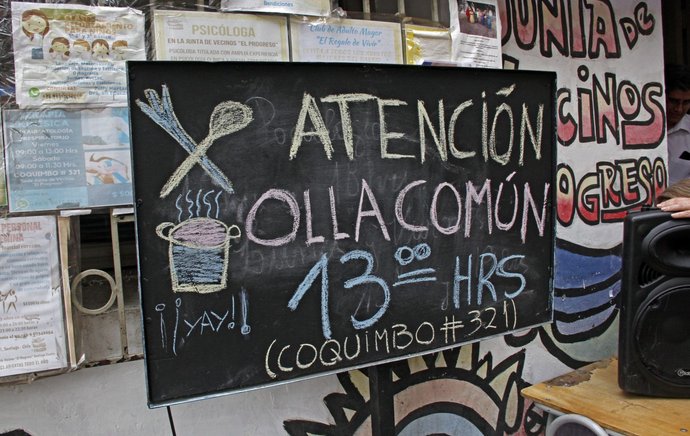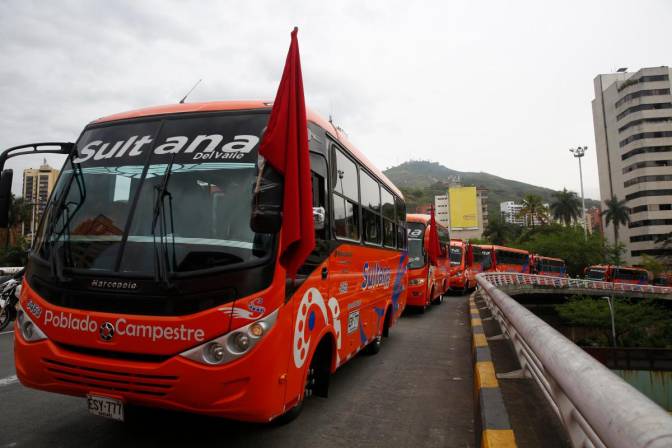- By Emily Gregg, edited by Mike Gatehouse, with additional material from Peru & Haiti Support Groups UK and LAB correspondents in the region.
- LAB has put together this eighth overview of the spread of coronavirus across the region and the reaction of governments, politicians and local communities. With our limited resources we could not hope to provide a truly comprehensive survey.
- Figures for infections and mortality, summarised in the table at the end, are those given by the World Health Organisation Situation Report 136 on Thursday 4 June. Where figures appear in the images within the article, they may refer to earlier dates.
- LAB will attempt to follow up this story, focusing on the poor, marginal communities, indigenous groups and inequalities in treatment and economic compensation for the effects of this terrible pandemic on individuals and families.
- See LAB articles at the head of our Home Page and in the Covid-19 section for further news, testimony & information. See also the posts on our Facebook page.
Latin America reached tragic milestones over the past week. Collectively, the region surpassed 50,000 deaths and numbers of confirmed cases of coronavirus in the region continue to rise at an increasing rate. Brazil has become the country with the highest number of cases globally, second only to the US; both Chile and Mexico have now totalled over 10,000 deaths each due to Coronavirus.
If you find this article useful, please consider donating to LAB. At present LAB is run entirely by volunteers. If we had more resources, we could do so much more. You can donatehere -we are a registered charity. If you can make a regular or monthly donation that will help us to plan and extend our work.
Hunger and help
The effects of quarantines throughout the region continue to have a devastating impact. For those who normally work in the informal sector or who have no possibility of working from home, hunger is a reality.
In Chile, ollas comunes have sprung up across the country. The ollas, or soup kitchens, originated in during the recession of the 1980s, feeding those who could not afford food themselves. They have reappeared in the poorer neighbourhoods of Santiago and elsewhere. Many of the residents in those neighbourhoods claim to have not received the benefits that the government had promised them. Protests broke out in the poorer neighbourhoods of the capital in the last week of May, as residents shouted, ‘We are hungry!’ and ‘We prefer to die of Coronavirus than of hunger!’ A community leader in Puente Alto, in the south of Santiago, said that the pandemic highlights Chile’s inequality. The country reached 100,000 recorded cases of Coronavirus on 2 June.

In Argentina, a second payment has been rolled out to those who have lost income due to the pandemic. The payment of 10,000 pesos (around US$145) is set to reach around 8.3 million Argentinians to keep them out of poverty.
Peru’s prime minister, ministers, and civil servants will take a 10 to 15 percent cut to their salary for the next three months. The money saved will be sent to the families of health workers who have died from working to fight Coronavirus.
You will find many more articles on the Covid-19 crisis on our website. Go to our Home Page to see the latest, or for a full list, go to the News page. You can also keep up-to-date by subscribing to our (free) monthly e-mail newsletter.
Migrants
The US continues to deport migrants with coronavirus. Those who have been returned to Guatemala make up 5% of the cases in the country, as of 22 May. The influx of positive cases is worsening the already overloaded health system. President Alejandro Giammattei had previously requested that the repatriation flights stop due to the pandemic. Colombia, Haiti, and Mexico have also reported that returned migrants have tested positive for the virus.
Migrants trapped in Panama on their journey north have tested positive for Coronavirus. A doctor reported that most of the cases were mild and only a few were taken to hospital. Authorities have taught the migrants about social distancing and how to use masks. Nonetheless, the risk of contagion in the migrant camps can be devastatingly high.
Concerns have been raised about Mexicans who cross the border each day to work in the California Valley, as well as the border guards who police the crossings. The only hand washing station in the tunnel that links Mexicali and the valley is broken. There are no social distancing measures in place although there is total quarantine in Mexicali itself.
Around 200 Colombians have been living in Sao Paulo airport, Brazil, since the end of May waiting for a flight home. Many were on holiday in Brazil when flights were cancelled leaving them stuck; others were living there until the pandemic left them without work. The Colombian embassy in São Paulo claims that three flights carried 346 passengers back to Colombia between 26 April and 14 May. However, one of the airport’s temporary residents claims the embassy failed to respond to the request for further flights.
The new normal
As the effects of quarantines takes its economic toll, some areas are starting to open up again, although perhaps prematurely.
Despite neighbouring the second most infected country in the world, Brazil, Uruguay has one of the lowest rates of Coronavirus in Latin America after imposing quarantine early and successful monitoring of the infection. The city of Rivera, which borders Brazil, continues to be a ‘weak point’ according to one government advisor. However, the country has seen no new deaths since 25 May. Only five of the 650 available ICU beds are taken up by Covid patients. Society is set to gradually reopen and the schools will steadily return to normal. Uruguayans are returning to local shops and are meeting up to chat with friends they have not seen for months.
In Colombia, on the other hand, quarantine measures have been tightened in Bogotá, Calí, and Cartagena to relieve the escalation of the virus. However, some are beginning to go back to work. Bus drivers have hung red sheets off their buses in protest, demanding to return to work. Red flags started to be hung out of windows in poor neighbourhoods in the country as a means for people to signify that they needed help to get food and medicine, amongst other essential items. The Ministry for Transport estimates that public transport by road employs around 50,000 people in the country. A meeting was held between the Minister for Transport and the representatives of the industry to seek out a way for the drivers to safely return to work.

Others in Colombia have moved into the factories where they work to be able to work. A textiles factory in Bogotá has built showers and set up beds to allow its workers to live there and continue working without risking the spread of the virus. For the workers, it is a relief to know they still have a job as unemployment in Colombia reaches a twenty-year high. It comes at the cost of being separated from their families indefinitely.
Factories in Mexico continue to reopen despite the increasing numbers of confirmed cases of Coronavirus in the country. Mexico produces a large number of car parts which are then shipped elsewhere in multinational car production supply chains. The industry in Mexico have warned that if they are prevented from returning to work, the production lines would come to a standstill. The president of the Volkwagen Mexico’s executive committee has pledged that their own return to production will be gradual and that hygiene and prevention measures will be enforced. However, the move appears premature, concerningly and potentially dangerously so.
Venezuela
In a surprising but long overdue bid to gain access to aid, president of Venezuela, Nicolás Maduro, and leader of the National Assembly, Juan Guaidó, signed an agreement to work together. Guaidó is recognised as the legitimate leader of Venezuela by 59 democracies worldwide, but Maduro has refused to cede power. The recent failed invasion of the country set tensions between the two politicians at an all-time high.
However, the agreement means that the rivals will coordinate their search for financial aid to help the country battle the coronavirus pandemic. The Panamerican Health Organisation (OPS) has confirmed the agreement and will be one of the key sources of the aid.
Venezuela’s long-term shortages of food and essential supplies have worsened during the pandemic as the US stepped up its sanctions and the price of oil – Venezuela’s main commodity – nosedived. Healthcare staff have protested at conditions in hospitals and lack of resources, despite the threat of prison or worse.
Water purification tablets and nutritional aid had arrived at the end of May donated by the UN. However, the group of Medicins Sans Frontiers doctors did not accompany them.
Country by country summary. Case and death figures from WHO Situation Report 136, 5 June 2020.
Reports from some individual governments and unofficial sources suggest considerably higher figures.
| Country | Cases | Deaths |
| Argentina | 18,319 | 570 |
| Belize | 18 | 2 |
| Bolivia | 10,991 | 376 |
| Brazil | 555,383 | 31,199 |
| Chile | 113,628 | 1,275 |
| Colombia | 31,833 | 1,009 |
| Costa Rica | 1,105 | 10 |
| Cuba | 2,107 | 83 |
| Dominican Republic | 18,040 | 516 |
| Ecuador | 40,966 | 3,486 |
| El Salvador | 2,705 | 51 |
| Guatemala | 5,586 | 123 |
| Haiti | 2,507 | 48 |
| Honduras | 5,527 | 225 |
| Mexico | 97,326 | 10,637 |
| Nicaragua | 1,309 | 46 |
| Panama | 14,095 | 352 |
| Paraguay | 1,070 | 11 |
| Peru | 174,884 | 4,767 |
| Puerto Rico | 4,023 | 140 |
| Venezuela | 1,819 | 18 |
Emily Gregg is a LAB correspondent and author. She lived in Arica, Chile, until returning to the UK because of the pandemic, and wrote The Student Revolution chapter in LAB’s book Voices of Latin America (2019).

